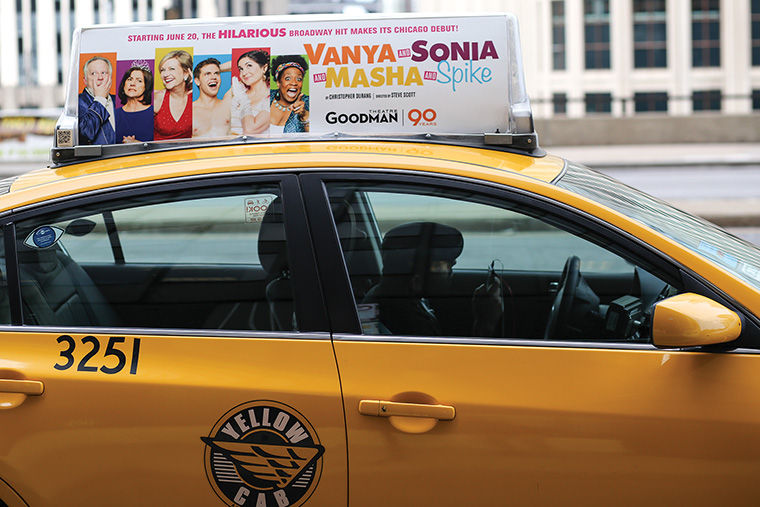Cabbies protest ride-share disparities
Taxi drivers protested ride-share services on Oct. 8, claiming services like Uber should be held to the same standards as taxi drivers.
October 12, 2015
Taxi drivers demonstrated Oct. 8 against what they claim is the unfair lack of regulation enjoyed by ride-share services such as Uber and Lyft. Some drivers went on strike and chose to stay home, while others went to the offices of local aldermen to explain how the current regulatory system was negatively impacting their business. Taxi drivers say they have to get a chauffeur’s license, which includes background checks, and make medallion payments for their cabs, while Uber drivers do not have to meet these qualifications.
“We’re fighting for all cab drivers,” said Dave Kreisman, spokesman for Cab Drivers United, AFSCME.
Kreisman said the union had about 25 cabs driving to various aldermen’s offices Oct. 8 to speak about the impact of letting ride-share services pick up residents at airports, which Mayor Rahm Emanuel proposed in his 2016 budget address Sept. 22.
Kreisman said the city needs to hold taxis and ride-share services to the same standards because they are both providing the same services.
“The mayor has proposed fees on Uber, but they are still [minimal] compared to what small business owners like cab drivers are paying. It’s not even close,” Kreisman said.
Uber stated in a press release on Oct. 7: “Today big taxi companies announced they will deny Chicagoans service for a day, bringing their all-too-familiar failure to serve many neighborhoods to the rest of Chicago. Unlike taxis, Uber is committed to creating economic opportunity and transportation equity in every neighborhood.”
Currently, ride-share services are not allowed to pick up fares from airports, but the mayor’s budget proposal—if passed—may grant that ability.
According to a Sept. 22 press release from the mayor’s office, the 2016 budget will “assess new ride-share and taxi fees that will create $60 million in 2016—an increase of $48 million from 2015. The ride-share industry will be responsible for more than 80 percent of this revenue. Residents and visitors will have more transit options at our airports and McCormick Place, and a portion of this revenue will support a significant expansion of wheelchair accessible taxi vehicles.”
Another announcement from the mayor’s office introduced a tax credit program that would provide an incentive to pick up and drop off people in underserved Chicago neighborhoods.
Kreisman said there used to be a similar program called Community Cab, which allowed drivers a reduced price on their medallions if they picked up and dropped off people in underserved areas.
He said the incentive was eliminated years ago, and it is something he would like to see return.
“It was a good program, [and] it worked well,” Kreisman said.
Other cab drivers are not as optimistic. Peter Ali Enger, secretary of the United Cab Drivers Community Council, said the record-keeping the tax credit requires would be burdensome to taxi drivers.
“It sounds great on the surface, but I think it’s an unworkable plan,” Enger said. “There’s a valid criticism of ‘Well, we call cabs, but they don’t come,’ but we’re independent contractors. We work where the money is and if there’s no street hails, I’m not going to chase a fare in a poor neighborhood that might be a five dollar fare and drive five miles to get [them]—it’s just not going to happen.”
Enger said a plan is in works for a universal dispatch app for taxis that would work similarly to the Uber app.
“I think the universal app will work because there is money in the neighborhoods—don’t get me wrong—and there needs to be a guaranteed payment,” Enger said.
Enger added that the app is set to launch in the early winter this year.
“We’re grateful for the thousands of Uber driver-partners who were on the road yesterday and every day getting people to where they need to go,” said Brook Anderson, an Uber spokeswoman, in an Oct. 9 email. “Uber will continue serving all of Chicago with economic opportunities and
safe rides.”








